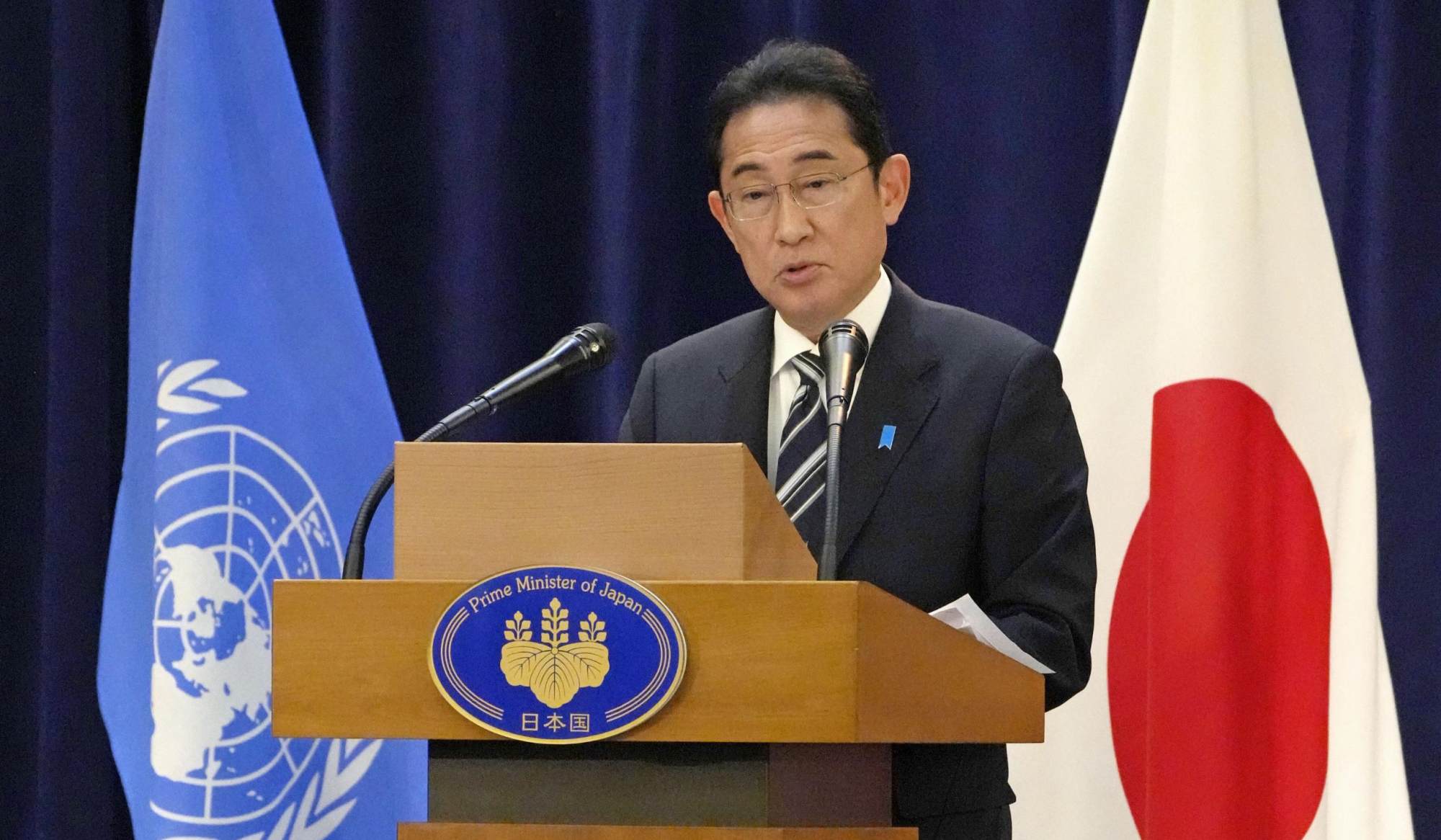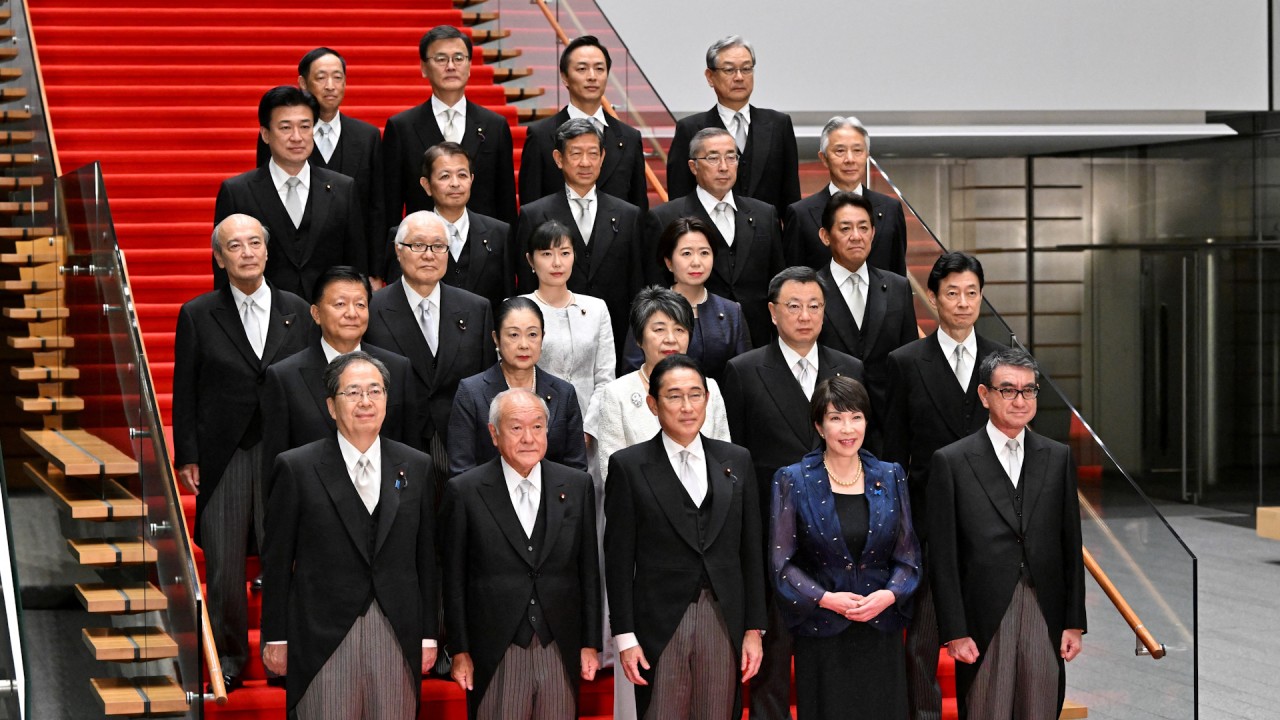
Will Japan’s financial sector reforms help Tokyo rival Hong Kong and Singapore?
- In New York, PM Fumio Kishida is set to outline plans to entice finance firms, looking at tax, tech, AI and helping foreign and female workers to thrive
- Analysts are divided on whether this will work, with some saying Hong Kong, Singapore ‘are more entrepreneurial, motivated, foreigner-friendly’
He will share his government’s vision of a thriving asset management sector with members of the 116-year-old non-profit, which describes itself as non-political and non-partisan.

A draft of Kishida’s speech, obtained by the Nikkei, shows that he will highlight his government’s business-friendly achievements and emphasise that “Japan’s economic indicators during the past year are at levels not seen in 30 years”.
He will also call on investors to “evaluate what we are doing … look at the underlying strength of our economy and our plans for the future, and then invest in Japan”.
A key element of that will be to “decisively carry out structural reforms” of the financial sector to make Tokyo a more appealing destination, he said.
The government has vowed to encourage corporate governance reforms, introduce changes to the labour market to improve mobility, and create environments in which women and foreign workers can thrive.
The government is planning greater public-private investment in advanced technologies, such as artificial intelligence, next-generation semiconductors and fusion energy.
Reforms are also planned in the areas of business regulation and taxation, while it is anticipated that the asset management sector will benefit from innovative and attractive new products.
Not everyone is convinced.
“I’ve been hearing about changes that would help the investment sector here for the 20 years that I have been in Japan, but they have always fizzled out and nothing actually changes,” said Trevor Webster, managing partner at the Tokyo office of the Taylor Brunswick Group, a wealth management firm.
Tokyo’s bid to compete with Hong Kong faces taxing problem
“Irrespective of the challenges that they both face, I have to say that Hong Kong and Singapore are much more entrepreneurial, motivated and foreigner-friendly,” Webster said.
Japan does talk about change, he added, but the government “and Japan Inc listen but they don’t hear, which is why so many earlier initiatives fell flat”.
For Webster, the biggest single obstacle to Japan attracting more leading financial professionals and companies are the high taxes, from individual taxation to corporate, and even encompassing taxation on a person’s inheritance in another country.
“The quality of life in Japan is very high, but that is not going to be enough to convince companies to base themselves here when taxation is so high in comparison with Hong Kong and Singapore,” Webster said.

Martin Schulz, chief policy economist for the Fujitsu Research Institute think tank, is more positive about Kishida’s campaign. He says the incremental changes that have previously been implemented, combined with a broader economic upturn in Japan, could see global financial firms ramping up their presence in Tokyo within the next 12 months.
“The previous efforts failed for different reasons, but mainly because there was little appetite for Japan to move the financial industry forward, because of consistently low interest rates and few new opportunities for the sector,” he said.
“But most of these items have been gradually addressed and Japan has become more flexible on visas, for example, allowing families in, granting working visas for spouses and allowing them to hire domestic support,” he said. “Those are the sorts of changes that the very highest earners want.”
The business environment has also changed, he said, with capital flow into Japan creating numerous business opportunities, while there is a widespread belief that the Bank of Japan is close to dropping its stubborn insistence on an ultra-low interest rate policy.
Japan’s WTO complaint plan over Fukushima seafood ban set to test China ties
Revisions need to be made to the different taxation requirements, but this is an area that Kishida has said he recognises needs to change, Schulz said.
“I think we will see changes next year,” he added. “Merger and acquisition activity is up, capital in and outflows are increasing and other financial factors are looking good as well.
“Perhaps companies will not be moving their regional headquarters to Tokyo straight away, but we can already see a shift in the technology sector into Japan and, if we are honest, finance is now a tech business as well,” he added. “There is huge interest in Japan from overseas investors and Kishida’s plans should do the trick.”


